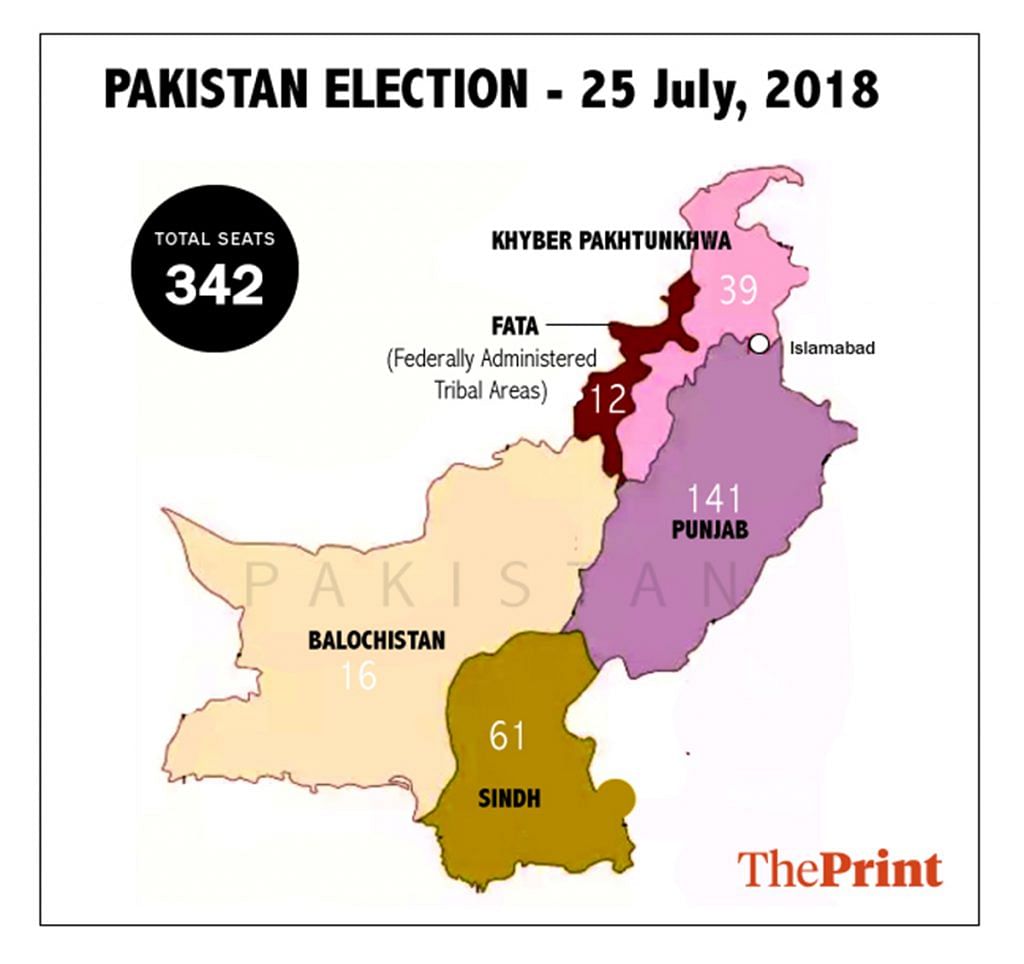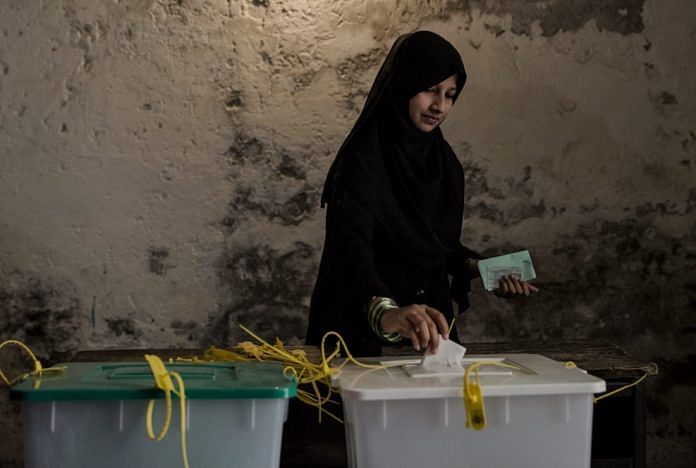The accusations of manipulation and interference by the military have led a number of citizens to come out in defence of democracy.
When Fatima Jinnah, the sharp-tongued, spinster sister of ‘Quaid-i-Azam’ Muhammad Ali Jinnah, challenged military dictator Ayub Khan in the 1965 presidential election, she accused him of fomenting a “reign of terror” in her brother’s beloved Pakistan.
Fatima Jinnah lost, of course, but not without winning Pakistan’s largest cities of Karachi and Dacca (then part of East Pakistan). In her defeat, she held on to the idea of dissent. Ironically, it was none other than the Left-leaning Zulfiqar Ali Bhutto, later prime minister, who supported Ayub in his creeping coup against democracy. Certainly, destiny has its own way of wreaking revenge; in 1979, Bhutto was deposed and silenced by a military dictator because he had dared to become a people’s ruler.
As Pakistan goes to the polls once again, history is as much a guide to the future of the world’s second largest Islamic state, as its immediate past.
The long and clamorous election season has witnessed an impressive campaign run by Shehbaz Sharif, former chief minister of Punjab province and brother of Nawaz Sharif; the rise of Imran Khan’s Pakistan Tehreek-i-Insaaf (PTI) as the principal challenger; and the nascent leadership of Bilawal Bhutto Zardari as the leader of the Pakistan Peoples Party (PPP).

Imran Khan is widely expected to win if only because he has been described as a “ladla” and a favourite of the security establishment, which everyone knows is the real power in Pakistan.
On the other hand, Shehbaz Sharif could be the dark horse who emerges from behind, even as his brother, former prime minister Nawaz Sharif languishes in Adiala jail.
Between Imran Khan’s “Naya Pakistan” slogan and Nawaz-Shehbaz Sharif’s Pakistan Muslim League (Nawaz)’s exhortation, “Vote ko izzat do! (Respect the vote!)”, the result is less than 24 hours away.
Still, it is the hurly-burly of the election campaign itself – campaign rallies late into the night complete with Sufi music performances, showering rose petals on the carcades of big leaders and a high-octane media coverage marred by allegations of thought control – that has demonstrated that despite the dismantling of its political institutions, the Pakistani people’s instinct for freedom of speech and expression remains intact and well.
Former prime minister Nawaz Sharif’s return from his luxurious house in London to Adiala jail is only the latest example of Pakistan’s repeated and surprising googlies in the face of mass pressure mounted by the security establishment favouring one candidate or another.
From the innards of his jail cell, Sharif has released a video which aims to tug at the moral high bone of each of his countrymen and women. Not so long ago, Sharif coined the inimitable “khalai makhlooq” phrase, literally “celestial beings” in Urdu, to describe the army and intelligence agency, the ISI’s efforts to mould the electoral process “from above”.
That phrase became so popular across the country that it evoked a smile each time it was used or read across social media. Laughter, these days in Pakistan, is being employed as a weapon of mass distraction.
Then there is the ‘jeep’ symbol allotted to various independent candidates, especially those who are said to be under the ‘chhatra-chhaya’, the all-encompassing benefaction of the security agencies. It is said that these candidates belong to the just-in-case category – to be used to support or undermine the winning or losing candidate, just in case, and as the case may be.
One Pakistani commentator, when asked about the ‘jeep’ candidates, tartly responded, “What if the jeep falls into the gorge? Who is going to rescue its inhabitants?”
If all goes according to plan, there is no danger of that. What the security agencies propose in Pakistan, they mostly dispose of too.
Why, then, did a senior judge of the Islamabad High Court, Shaukat Siddiqui, raise several questions over the alleged interference of military and intelligence agencies in the functioning of the judiciary only last week? Reprimanding him was none other than the Chief Justice of Pakistan Mian Saqib Nisar, who angrily asked him for proof of his statements. The judiciary, he added, must and should refrain from any form of activism for the country to have a good leader.
Remnants of a fledgeling democracy
The military and the ISI consider themselves the guardian of the state of Pakistan. They have, historically, worked in precarious ways to ensure the subversion of democratic institutions, disrespect of popular mandates, suspension of certain rights and the coercion of a still largely-free press. The failure of the development of a civil society and public consciousness in Pakistan today is largely due to the perverse tactics of the army.
By now it is clear that the country’s leading newspapers and media companies have been brought under censorship through various means. If you can’t impose martial law, because the Pakistani people won’t tolerate that anymore, how about a creeping coup?
In an article recently for the Washington Post, the CEO of Dawn Media Group, Hameed Haroon spoke about the suppression of free media in Pakistan. The Pakistan Institute of Legislative Development and Transparency believes that the pre-poll process has been unfair. Research suggests that the perception of the media and the army as neutral entities have been compromised.
But other actions have also not gone unnoticed.
Severe protests have rocked the military’s headquarters in Rawalpindi days before the country’s election this week. The accusations of manipulation and interference by the military have led a number of citizens to come out in defence of democracy. These protests mark a significant shift in Pakistan’s fledgeling democracy and are proof of the growing consciousness of its people. In the past, the coveted institutions of the state, the army and the ISI were beyond any form of questioning.
Meanwhile, the poll process in Pakistan is underway. Rallies and processions have given way to queues at polling stations. Social media is alive and kicking. TV channels, though banned in India, can be accessed online for their ball-by-ball coverage of the ongoing election process. The Dawn has come up with online games like #Election2018 to educate and entertain people. Geo TV began it mammoth coverage with the entire TV channel singing the Pakistani national anthem. On Twitter and Facebook, satire is competing with sense and sensibility.
Pakistan is voting in the face of a coercive deep state. That is already a victory.



